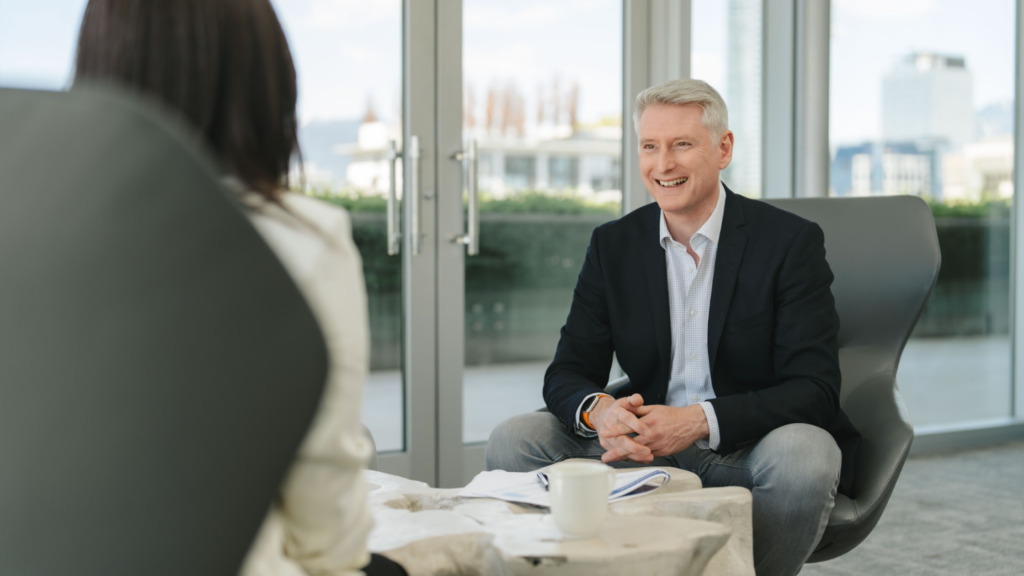Picture this: your loved ones have just received their inheritance. It’s a financial windfall you worked hard to grow during your lifetime. And hopefully it will help them as they navigate the challenging future they face: increasingly frequent climate disasters, geopolitical turmoil and resource depletion – all of which have created difficult circumstances.
Sure, they’ll have your wealth to support them, but will they have clean air to breathe? Will their safety be at risk? Will they know what to do with the financial gift to ensure it supports your values – and theirs – for a better world?
These are the kinds of questions we encourage our clients to consider when they’re planning their estate. Because aligning the desire for a better future for your family with the way you structure your estate planning today, can help to make it more likely that they’ll experience the future you wish for them.
We do this at Genus not only through our responsible, sustainable and impact investing portfolios, but by working with families to help them think more holistically about estate planning.
Expand your definition of family legacy
To many, a family legacy is merely a financial gift. But to us, money is just one part of the picture. Grant Conroy, a Portfolio Manager and Partner at Genus, prefers to look at wealth planning as more than just documents surrounding money and inheritance.
In fact, for Conroy, the narrow, legal, money-centric definition of “estate planning” falls short. He believes we need to make wellbeing part of the family wealth journey – and for good reason! The Great Wealth Transfer is well underway, with an estimated CA$84 trillion shifting from baby boomers to their children and other beneficiaries over the next 20 years. And there’s a tremendous opportunity to make positive change with this wealth – change that will impact the wellbeing of future generations.
With millennials favouring investments that address climate change and prioritizing impact investing over traditional philanthropy, this financial sea change has the potential to address the most pressing issues of our time.
But ensuring that your beneficiaries use their endowment to this effect requires a more holistic alignment of values, careful communication and open, honest conversations. “It’s difficult for the gift giver to leave money and say, ‘I really want you to use this for climate investing, or toward some specific social purpose,’” says Conroy.
He believes estate planning needs to be “a larger umbrella that drives people to have serious family conversations about their vision for how the money might be used, but also more holistically, engendering their values of stewardship and responsibility in the next generation.”
Turning a will into a collective undertaking

We know that less than half of Canadians don’t have a will. And even those who do often don’t discuss the finer details of its contents – or the intention behind it. That’s because these kinds of conversations can be uncomfortable. Death and finances are some of the last remaining taboos of our generation when it comes to open communication – and many families prefer to avoid them altogether.
Conroy suggests that reading together may be a better way to spark thought and discussion on the topic – and to make estate planning easier on your family. One of his favourite resources is Willing Wisdom: 7 Questions to Ask Before You Die by author and lawyer Thomas William Deans.
In his seven questions, below, Deans underscores the degree to which monetary wealth is only one part of a legacy. He encourages readers to ponder:
- What word best describes our family? Share a family story that helps explain the word you selected.
- Describe how your parents acquired their wealth.Share a memory about something your parents did to provide for you that left a lasting impression.
- How would an inheritance advance your dreams for yourself, your family and your community?
- In the context of planning for the division of your assets, does fair mean fair or does fair mean equal? Who are you planning on leaving your wealth to, and will you share a copy of your Will with me?
- Describe how your parents divided their assets and when you first learned of the contents of their Will. What would you do the same and what would you do differently?
- Describe the role you play or played in the final care of your parents. Can you name one thing that was or is being done well, and one thing you could change or wish you had done differently?
- Describe in detail your last wishes.
Deans suggests families meet regularly to discuss these questions and build an ongoing will and testament of much deeper meaning to one another, centred around the family story and, perhaps most importantly, shared values.
This process turns a will, often considered a secret, contentious document, into a collective undertaking, and helps families resonate with one another over their vision for the future. “Not enough people are having communication around these issues,” Conroy says.
How to get started with your family will and estate plan

To embark on this journey, first you need to redefine what wealth means to you. Then you’ll need to carve out the time to communicate about it. Conroy advises his clients to make time regularly for these kinds of discussions. “I recommend my clients read Willing Wisdom,” he says, “but I also encourage them to have these conversations as early as possible—to share their vision, their dream for the future and for their children’s futures.”
After all, your family members aren’t mind readers. “If you never talk about it, the chance that it will end up being used how you envisioned it is pretty slim, right?” he adds.
Estate planning conversations should be thought of as an ongoing process. As circumstances and individuals change over time, open communication gives your legacy the greatest potential to do the most good – for your beneficiaries and for the world at large. “Some of the considerations to discuss are simple, but rarely brought up,” Conroy says. “For example, why are you leaving financial gifts to your beneficiaries? It’s likely you have a detailed image of your hope for their future – and that legacy. But then the question becomes: have you spoken to your heirs about this vision?”
The good news is, it’s never too late to start these conversations and make them more intentional; to dig deep and outline the kinds of impacts you hope your legacy will have on the future. And from our perspective, the future we all hope for truly depends on it.
Interested in making a positive impact with your family estate? Get started today with our digital and personal wealth management services.
References:
- Siu, E. (2024, December 22). How Gen X and millennials are changing the face of the traditional family office as they inherit over $80 trillion. CNBC. https://www.cnbc.com/2024/12/23/great-wealth-transfer-how-gen-x-millennials-are-innovating-family-offices.html
Cerulli | Press release: Cerulli anticipates $84 trillion in wealth. . . (n.d.). Cerulli Associates. https://www.cerulli.com/press-releases/cerulli-anticipates-84-trillion-in-wealth-transfers-through-2045
Morgan Stanley Institute for Sustainable Investing & Brunswick Group. (2021). Sustainable signals: individual investors and the COVID-19 pandemic. In Morgan Stanley Institute for Sustainable Investing. https://www.morganstanley.com/assets/pdfs/2021-Sustainable_Signals_Individual_Investor.pdf
- Garrido, P. (2022, April 22). Millennials choose impact investing over charitable giving. Impact Investor. https://impact-investor.com/millennials-more-likely-to-become-impact-investors-survey/
Korzinski, D. (2023, March 26). Lacking the Will: Half of Canadians say they don’t have a last will and testament, including one-in-five aged 55+. Angus Reid Institute. https://angusreid.org/canada-will-testament-intestate-dying-without-will/
Willing Wisdom | Willing wisdom. (n.d.). https://willingwisdom.com/book/











